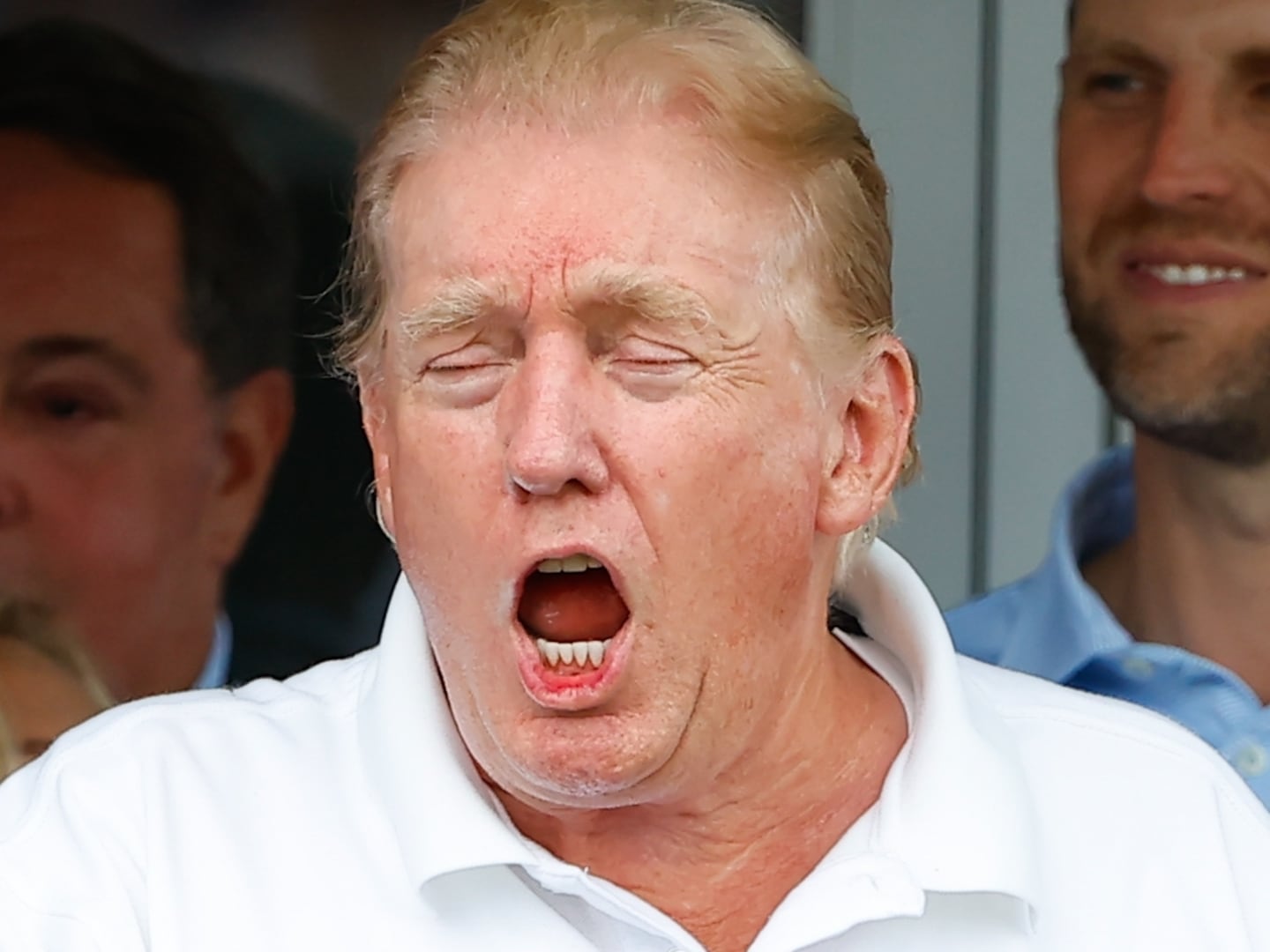When two evil villains clash—when Kylo Ren turns on Snoke, when it’s Godzilla versus King Kong, when the Yankees play the Red Sox—the best thing you can do is sit back and hope they both lose (without too much collateral damage).
Such was the case when President Donald Trump launched his epic takedown of Steve Bannon on Wednesday. It was a decisive knockout victory for Trump, and maybe some good will come of it.
Not to sound naïve, but reports that Trump dictated much of the memo also offers us a rare glimmer of hope that a post-Bannon-era Trump might be slightly better (Bannon was officially dispatched from the White House last summer, but this split feels more permanent). Here was a man capable of writing coherent sentences that were longer than your average tweet. But the most important thing is that, unlike most of Trump’s declarations, his comments about Bannon in the statement were mostly true.
“Steve Bannon has nothing to do with me or my Presidency,” Trump wrote. “Steve was a staffer who worked for me after I had already won the nomination by defeating seventeen candidates, often described as the most talented field ever assembled in the Republican Party.”
Trump’s massive ego wouldn’t permit history to cast Bannon as his Svengali or Rasputin, and the truth is that Trump never needed one. It is true, as Trump reminds us, that Bannon joined the campaign after Trump won the primary election.
Analysts can argue about how many points well-run campaigns are even worth (in a normal election), but Trump’s victory was about the cult of Trump, Hillary Clinton’s baggage, the 2016 political environment, and the “Make America Great Again” slogan—and little else.
From a technical standpoint, this was not a well-run campaign. Nor was Steve Bannon, Trump’s top adviser, equipped to deliver one.
One needn’t go back to Mark Hanna or James Farley for examples of seasoned pols and political operatives who actually helped elect and advise presidents. David Axelrod was an experienced journalist and longtime political strategist before he helped guide Barack Obama to the presidency. Karl Rove had been active in the College Republicans (arguably the most cutthroat training ground available) and had advised numerous races (including George W. Bush’s Texas gubernatorial elections) before becoming the “Architect” of Bush’s presidential victories.
James Carville and Paul Begala steered the successful gubernatorial campaigns of Zell Miller in Georgia and Bob Casey in Pennsylvania before opening up the Clinton “war room.”
George H.W. Bush had Lee Atwater and James Baker. Enough said. And Ronald Reagan had Mike Deaver and Lyn Nofziger, talented and experienced loyalists who had guided The Gipper through two successful campaigns for California governor.
Before last year, it’s safe to say that this humble columnist had more political experience than Steve Bannon.
This is not to say that Bannon had nothing to offer. Indeed, he served in the Navy and worked at Goldman Sachs. That’s nothing to sneeze at. But it is to say that his primary expertise seems to have been in self-promotion—not in electing politicians or advancing public policy.
Bannon’s real skill set seems to involve (a) latching on to someone richer or more popular or famous, (b) creating the impression that he is powerful (he described himself as Darth Vader), and (c) manipulating the media into covering him as a glamorous man of mystery, which is pretty easy once you do a and b.
As Trump put it: “Steve pretends to be at war with the media, which he calls the opposition party, yet he spent his time at the White House leaking false information to the media to make himself seem far more important than he was. It is the only thing he does well.”
In so many ways, Bannon and Trump are similar to one another. Both are bullshitters who faked it till they made it—and went amazingly far. Both love the press, while simultaneously criticizing it.
Speaking of the press, perhaps as a self-preservation measure, there is a tendency to cover this administration (especially the “palace intrigue” stuff) as entertainment. But it’s important that we be reminded how deadly serious this all is.
President Trump continues to say and tweet things that are unhinged. North Korea and Iran remind us that this is a dangerous world. Policies like tax reform and healthcare have the potential to touch millions of lives.
It would be silly to suggest the defenestration of Steve Bannon is a cure for all of this; indeed, it is currently distracting us from these things. Still, Bannonism represents a dark form of the nationalism that helped give rise to Donald Trump (even if Bannon himself did little to elect him). In a world where we have had little to be happy about, we should permit ourselves some small degree of schadenfreude. And then, tomorrow, it’s back to work.






